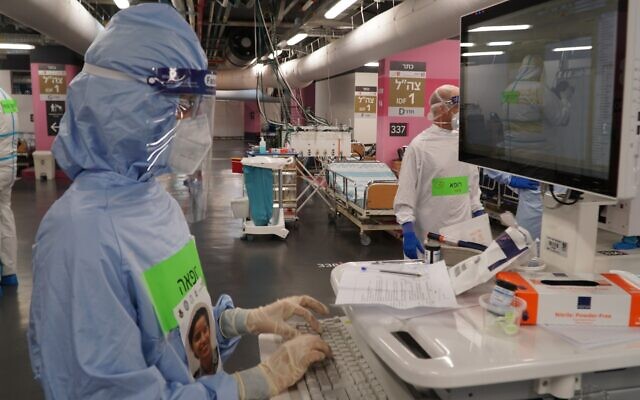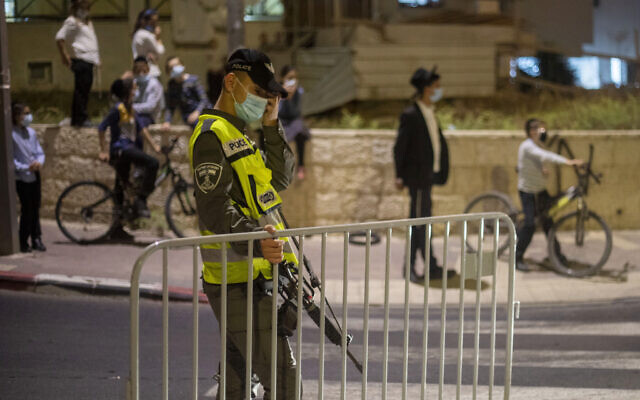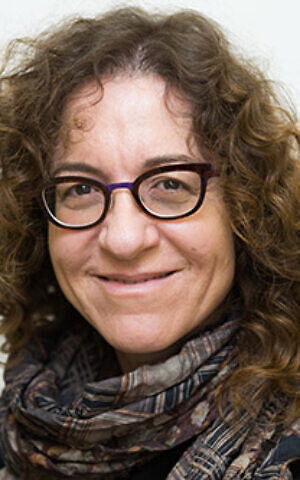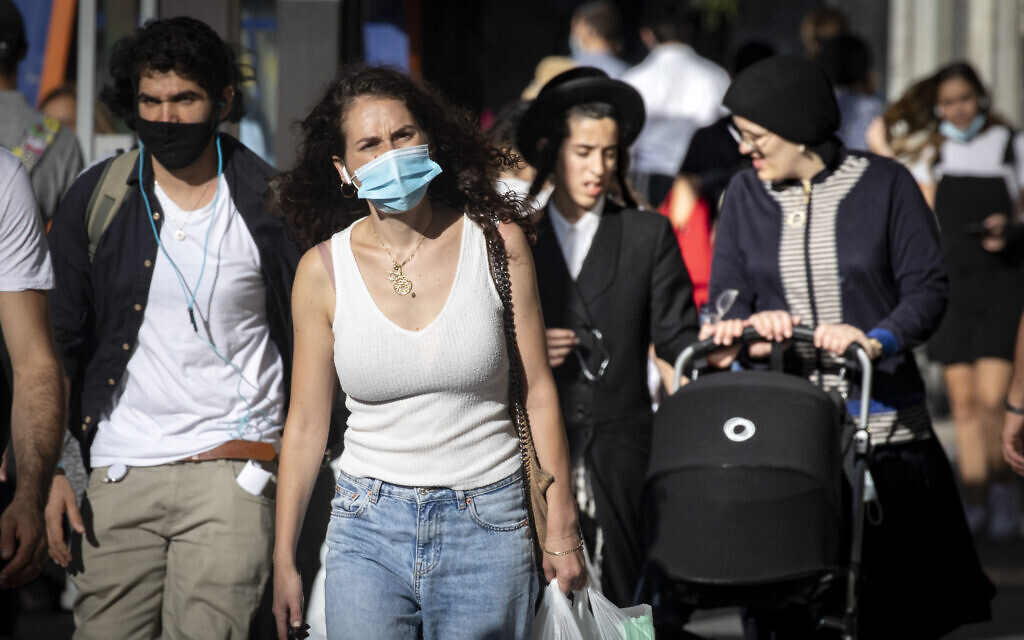Adviser to coronavirus czar expresses concern as make-or-break question left hanging, says maintaining restrictions in cities with high infection rates key to fighting virus

Government ministers decided on Thursday to ease some lockdown restrictions starting next week, but did not rule on the issue experts believe will determine Israel’s success in fighting the virus — imposing localized restrictions on high-infection areas.
With the number of new infections declining, the high-level coronavirus cabinet on Thursday evening voted to lift limits on movement, reopen daycares and preschools, and allow some businesses to open, among other measures. Prime Minister Benjamin Netanyahu warned the decision could change if infection rates rise over the weekend.
Ministers were reportedly discussing separate exit plans for cities with low and high infection rates but have not yet ruled on the matter. Shortly before the meeting, several cities were taken off the list of places with particularly high morbidity rates, where many restrictions are expected to remain in place.
Lawmakers will further address the issue of so-called “red zones” on Saturday night, when a final decision will need to be made on whether to include or exclude them from the newly eased limitations.
The health care community was dismayed that in its Thursday discussions, the so-called coronavirus cabinet, a limited forum of ministers whose portfolios are directly tied to fighting the pandemic, excluded the issue of localized restrictions from its main deliberations. Officials believe targeted measures for different communities is one of Israel’s most effective virus-fighting weapons.
“If we fail to implement localized lockdowns at this, the first stage of reopening, we’ll have a lack of options in the future,” Ronit Calderon-Margalit, epidemiologist and adviser to Israel’s coronavirus czar Prof. Ronni Gamzu, told The Times of Israel on Thursday.
Localized lockdowns are strongly supported by health researchers, but have become an explosive political issue because most red zones are ultra-Orthodox areas, and many Haredi leaders say local measures make the community feel targeted.
Officials leading the fight against the virus planned such a localized approach last month, as an alternative to a blanket national lockdown, but it was scrapped following ultra-Orthodox political pressure.

Calderon-Margalit, a Hebrew University professor, said that not ordering restrictions on red areas in Thursday’s cabinet decision was “an oversight that is really worrisome.”
She suspects it means that some hard-hit areas will partially reopen like the rest of Israel on Sunday, or that additional restrictions in high-infection localities will be very minimal.
If this happens, she believes that political pressures will have trumped health concerns.
“My fear is that, as we see now, the government either doesn’t want to, or can’t force regulations on communities that are determined not to obey,” she said.
Some parts of the ultra-Orthodox community disregarded lockdown measures in recent weeks, despite high infection rates, sparking widespread public anger.

Prof. Tomer Hertz, an immune system researcher at Ben Gurion University of the Negev, also believes failing to make decisions based on regions could have a high cost.
“If local restrictions don’t happen, in reality, we’re going to be having very similar conversations about high virus rates very soon,” he told The Times of Israel.
Bar Ilan University virologist Prof. Ronit Sarid thinks that health officials have learned from some of their mistakes exiting from the last lockdown, but the issue of local restrictions is their Achilles’ heel. Israel successfully clamped down on its first wave of the virus outbreak in the spring, but after lifting the restrictions, the country saw a severe second-wave outbreak, likely due to reopening too quickly.
Sarid spoke about the dangers of not implementing local measures with The Times of Israel shortly before the coronavirus cabinet met on Thursday.
“They are trying to be more careful compared to the first wave, but in my opinion, the exit strategy cannot be general,” she said of the cabinet. “You just can’t treat the whole country as one area, you need to evaluate risks in different places. If you talk scientifically, you have to evaluate the risks and take decisions.”

In its Thursday decision, the coronavirus cabinet agreed to lift the limit on Israelis traveling more than one kilometer from home unless for specific permitted purposes; allow them to visit others’ homes so long as caps on gatherings are adhered to (10 indoors, 20 outdoors); reopen preschools and daycares; allow restaurants to serve takeout; permit businesses that don’t receive customers to open; allow Israelis to visit beaches and national parks; and reopen the Western Wall plaza and Temple Mount compound for worship under certain restrictions.
The first phase of reopening after a month-long nationwide closure is part of a Health Ministry plan for a gradual, several-month exit based on epidemiological benchmarks.
Israel has been under a national lockdown for the past month to contain the raging second wave of the pandemic, which at one point reached some 9,000 daily cases. Recent days have seen both the number of daily cases and the percentage of positive tests go down amid the sweeping restrictions on the public. The death toll is rising, however, crossing 2,000 on Sunday — just five weeks after it passed 1,000.
Health Ministry figures published Thursday night showed 2,020 new cases were confirmed throughout Wednesday, just over the 2,000 mark below which authorities have determined that lockdown measures can start to be eased. However, the target number of 2,000 daily infections — along with a positive test rate of under eight percent and a basic reproduction number of less than 0.8 — must be met as a daily average for an entire week, and it wasn’t clear when exactly those criteria would be fulfilled.
As reported by The Times of Israel
